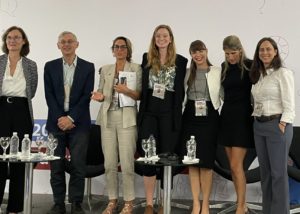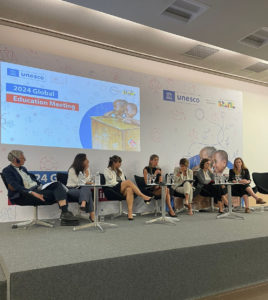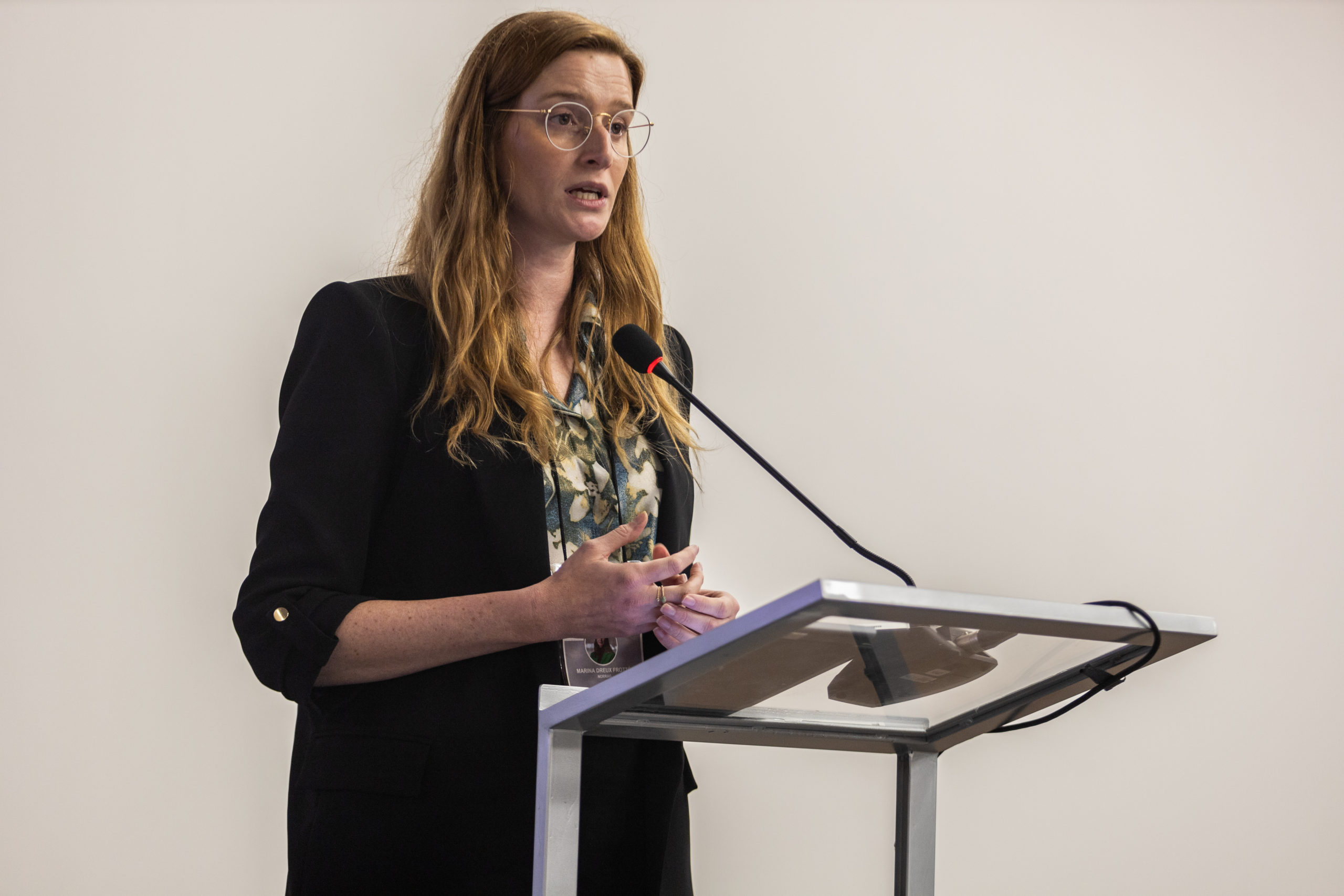Event Highlights: UNESCO Global Education Meeting 2024 – Innovative Financing for Education session
On 1 November 2024, Marina Dreux Frotté, Senior Research Associate for the IFE-2-Leave No One Behind project at NORRAG, delivered a keynote address on Innovative Financing for Education (IFE) at the UNESCO Global Education Meeting in Fortaleza, Brazil. The session also featured a dynamic panel discussion with sector experts representing the European Commission, Education Outcomes Fund, CAF Development Bank of Latin America and the Caribbean, Global Partnership for Education, Inter-American Development Bank and the Minister of Education from Côte d’Ivoire.
Keynote presentation on Innovative Financing for Education
Marina Dreux Frotté’s presentation drew on the extensive research led by NORRAG since 2018, co-funded by the SDC Research Desk and project partners. In particular, she highlighted the foundational pieces on innovative financing published by NORRAG, as well as the diversity of cases studied.
The presentation addressed the promise of innovative financing to bridge the education financing gap for low-and middle-income countries. Marina Dreux Frotté reminded the audience that IFE encompasses a range of mechanisms, each employing distinct models to serve different purposes. Some mechanisms aim to generate additional funding for education, while others focus on maximising the efficiency and/or effectiveness of existing funds. Despite the diversity in such mechanisms and their application, the presentation also pointed out common threads across innovative financing approaches to education, such as the use of business-like approaches and a focus on results. Additionally, a set of lessons learned for designing IFE initiatives were shared.
While there is increasing evidence that many interventions funded through IFE have achieved targeted results, Marina Dreux Frotté invited the audience to reflect on a series of unanswered questions about the contribution of the innovation in financing itself. She emphasised the need to investigate further how such innovative initiatives perform as compared to traditional financing. In particular, she highlighted the need to test the assumptions underpinning IFE, specifically its contribution to additionality, increased effectiveness and efficiency. Marina Dreux Frotté underscored that IFE should not be seen as a universal solution for all education financing challenges. Instead, she emphasised the need for a deeper exploration of whether, how and under what circumstances innovative financing mechanisms contribute to more and better education results. Lastly, she called for strengthened public sector ownership of IFE mechanisms as a critical avenue to ensure equity and sustainability of the education results.

Panel Discussion: Insights from Global Experts
The keynote presentation was followed by an engaging panel discussion featuring leading sector experts, moderated by Andrew Jack, Global Education Editor of the Financial Times. The panel brought together representatives from the European Commission, Education Outcomes Fund, CAF Development Bank of Latin America and the Caribbean, Global Partnership for Education, Inter-American Development Bank and the Minister of Education from Côte d’Ivoire. Their diverse perspectives and extensive experience provided valuable insights into the wide range of innovative financing for education (IFE) approaches currently being implemented. The discussion highlighted both the opportunities and challenges these mechanisms present. It also emphasised the importance of coordination of different initiatives and the need for continuous learning and adaptation to optimise impact.
The panel discussion was followed by a thought-provoking exchange with the audience. Key issues raised included the complementary role of IFE in times of shrinking education funding and the need to build the capacity of public sector stakeholders in education financing. Marina Dreux Frotté highlighted the importance of fostering public sector engagement with existing evidence on IFE, underscoring the importance of creating knowledge exchange spaces such as the UNESCO Global Education Meeting. Concluding her remarks, she emphasised the need to empower public sector actors to critically evaluate and question innovative financing approaches, ensuring they contribute to addressing pressing education challenges sustainably and equitably.

Panellists:
- Andrew Jack, Global Education Editor, Financial Times (moderator)
- Marina Dreux Frotté, Senior Research Associate, IFE to Leave No One Behind project, NORRAG
- H.E. Mariatou Koné, Minister of Education, Côte d’Ivoire
- Erica Gerretsen, Director of Human Development, Migration, Governance and Peace, European Commission
- Milena Castellnou, Chief Programmes Officer, Education Outcomes Fund (EOF)
- Raphaelle Martinez, Team Lead Education Financing, Global Partnership for Education (GPE)

